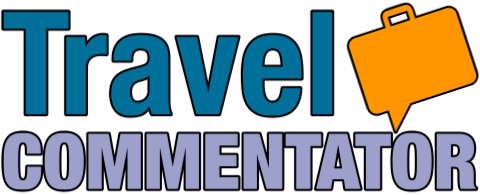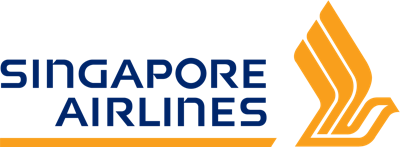Air Travel Etiquette: Some Basic Rules
To me etiquette, in the context of air travel, starts way before getting on board the plane. It starts as soon as you enter the airport terminal. Good etiquette alleviates frustration, anger and conflict. Issues that have become more common with air travel.
What is etiquette?
Etiquette is basically a code of conduct, an unwritten set of rules that govern behaviour and social interactions. Principles such as: respect, kindness and consideration, or the proper and polite way to behave are the mainstay of etiquette, but also decorum, manners and attitude play their part.
Applying etiquette to air travel
I suppose like in any situation where one has to interact with others in a comunal setting certain rules need to apply. So before stepping into the airport terminal and onto the plane it’s a good time to start thinking how to behave. Being together with other people is not unique to air travel but flying at 36,000 feet with no where else to go is, and there will be situations that only occur on a plane. Let’s list where and when good etiquette should be applied from Departures, In-flight to Arrivals.
At the Airport Terminal and Departures
- Check-in
Line up in the correct queue either in Economy Class, Business and First Class and those with status. Be patient as queues may move slowly. Don’t assume the higher class check-ins will accept you. If they will they’ll make it known. Get your passports and other documents (if required) ready. Choose one of the several check-in agents or the first one available to you. Don’t cut off other people. Always be corteous to the check-in staff. If an issue arises it can be resolved by speaking to a duty manager. This includes a flight that is overbooked. Always keep a cool head as getting upset solves nothing. Make sure you are not advertently taking something in carry-on that will be confiscated at security. Place those items into your checked luggage before they are shipped to the baggage handlers. Anything of value or essential goes into the carry-on. Also make sure you don’t pack things that cannot go into the cargo hold for safety reasons, such as lithium-ion batteries. All done, move along to security and queue up there.
- Security Checks
As much as these are a pain to go through get yourself ready. Have all the liquids separate in their right size containers and in see through resealable bags. Take laptops, tablets and smartphones out and make sure any metal objects are put in the tray. Don’t worry what other people are doing. Let the security staff sort them out. Concentrate on what you need to do. Hopefully you haven’t by mistake taken anything that will be confiscated. At random someone will be body scanned if not everyone. Again this is a formality even though it is understandable it can be a privacy issue with some. You may also have your bags swabbed for expolsives residue. Don’t make any silly remarks and again be corteous to the staff. Getting hot under the collar here may get you into trouble as in the next step at Passport Control.
- Passport Control/Emigration
This should be a formality. These days most are done with e-gates. Occasionally someone can be pulled aside and their identity and itinerary checked. Relax and be courteous.
- Gates and Departure Halls
Take a seat in the Departure Hall and wait until your row numbers are called and line up. Do not hog seats or lie down across them. Let others sit as well, especially older people and families with children. When called there is no hurry and do not push or shove. Do not crowd the gate area where the check-in agents are. Let families and those who have special needs enough room to move to the front. They board first with those that are in Business Class and then those that have status. There is a procedure to be followed so there is no need to rush as seat and row numbers will be called out. Make your way to the gate show your boarding pass or QR code and move along to board the plane, again no rush.
In the cabin in flight
This is where most of the behavioural issues happen and where mindfulness and etiquette really kick in.
- Boarding
As you board always greet the FAs. If you know where your seat is go there straight away, if not one of the FAs will direct you. When boarding and walking down the aisle be mindful where your bag is being swung and not hit anyone across the shoulders or head. Same with the trolley where it rolls. Watch for peoples’ feet and ankles. Make sure you are in your assigned seat. Hopefully you have boarded in the right sequence to alleviate some congestion in the aisle. In the row of two or three you and your neighbours are sitting down window first, middle second and aisle last. This can be a minor issue so anyone coming down the aisle needs to wait and be patient. Same applies to sitting in the middle three or four on a twin aisle plane.
- Overhead Bins and Stowing Carry-ons
As soon as you are at your seat put any luggage that you won’t need to access straight into the overhead locker. Always put your bags above where you are sitting on your side of the aisle. Not good etiquette to place things across the aisle and lean over passengers on that side. Anything you require at your seat should have been taken out earlier or in a small bag or fanny pack/bum bag to be placed in the chair pockets. If you have a bag that will stay with you stow it under the seat in front of you and make sure no one can trip over it. Don’t board early and place items in the forward lockers and then move to the aft to take your seat. Same if you board last and find a bin open in the forward section. If for some reason you can’t stow your luggage above your seat look for room in bins close by. Lastly don’t be too territorial if someone else near you does the same thing. Rather help them find space and don’t argue.
- Safety Announcement, Taxiing and Takeoff
During the safety announcement pay attention and listen. Even if you have been through this tens or hundreds of times. It refreshes the memory. Make sure you have your seatbelt on properly and the chair is upright before taxiing and take off. Also make sure there is nothing on the ground that will cause yourself or others to trip over in case of an evacuation. Anything small and loose stow them in the seat pockets. Window shades must stay at up during taxiing and takeoff. Mobile phones and other devices using data should be set to airplane mode * and should not be plugged in during taxiing and takeoff. If seated in the emergency exit row be ready in all cases to assist the flight crew in an evacuation. Sitting here comes with some responsibility. During moments of turbulence return to your seat and buckle up. Always pay attention to any announcements made from the cockpit.
- Seating
Stay in your allocated seat and do not go looking for empty seats and rows at time of boarding, taxiing and takeoff. Do not swap seats unless it is to your advantge especially if you’ve paid extra for yours. You are under no obligation to change seats. You can change seats after the seatbelt sign turns off. Return to your allocated seat at time of landing. Don’t hog armrests and don’t spill into others seats. Don’t poke your knees into the back of the chair in front. Chairs are not thick and well padded and the person in front will feel this in their back. Do not stretch your legs so the feet sit on the armrests of the chair in front whether bare foot, with socks or wearing shoes. Same spreading bare feet across the seat. If lowering the chair be considerate of the person behind. Ask to minimise any conflict and then do it slowly. You do have a right to lean the chair back especially on long haul fligths but do this when the lights are turned off and it is time to rest. On short haul flights it is bad etiquette to lay down the seat. Do not throw your hair over the top of the chair and impede the passenger behind from viewing their monitor. Do not do any grooming at your seat. Do not scratch the back of your head, brush or stroke hair so skin flakes and hair fall onto the tray of the person behind. Not etiquette but good hygiene is to have antibacterial wipes with you to clean trays, armrests and buckles on the seatbelt. All areas that can harbour germs and not always cleaned thoroughly in between flights.
- Meals
Be considerate of your seating neighbours and keep all your wrapping, leftovers, utensils, etc., on your tray. Chew with your mouth closed and preferably keep chit chat to before and after meal time. Do not eat nuts on board. There may be travellers who are allergic. They have not been served inflight now for a while because of this. So be mindful and don’t carry any into the cabin to be consumed there. If bringing your own food and snacks make sure to keep things tidy. Don’t bring oily, greasy or smelly foods. Lastly do not have your seat reclined when it is time for meals.
- Lavatory
When going to the lavatory wear shoes. Socks or bare feet is not good etiquette. You will pick up something either down the aisle or in the lavatory itself which could be urine or other matter. You don’t want to bring something back to your seat which is unwelcomed. Use the lavatory with respect to others. Don’t think it is the responsibility of the FAs to keep things clean. Do your part as if it was at home. Always wash your hands and be careful what you touch afterwards. This goes beyond good etiquette, good hygiene is something everyone should ahere to. It’s common sense. Toilets for Economy Class are at the rear on single aisle planes and in the middle and aft on twin aisle planes. Do not attempt to use the Business Class washrooms unless authorised by the crew. Do not congregate around the lavatories to chit chat unless in line waiting to use them.
- Odours
Do not go overboard with perfumes or other aromatic scents or materials. Some people are allergic and may cause them headaches/migraines and nausea. Flatulence, unfortunately is unavoidable in the pressurised cabin. If possible try to get rid of any in the toilets. This would be good etiquette. Do not take your shoes off especially if you have smelly socks.
- Talking and Noise
Don’t talk loud or be disruptive. With language always be polite towards staff and fellow passengers. If listening to music or podcasts etc., wear headphones but make sure you are aware of others if they need your attention.
- BYO Entertainment and IFE
You are entitled to watch the inflight entertainment but if you are about to sleep turn off anything that is emitting light. Those directly behind you or to the side across the aisle are also affected by stray light. On long haul overnight flights it is best to limit viewing time as the blue light emitted is a major factor in delaying sleep. If you have finished viewing your tablet or reading your book switch off the reading light. Do not watch material on your portable devices that may offend or make those around you uncomfortable.
- Sleeping
Be mindful not to encroach on others and don’t hog the armrests. Do not stretch your legs out into the aisle. Do not place your feet onto armrests of the seats in front. Do not stretch your legs up onto the headrest of the seat in front or rest bare feet onto bulkheads. Wear socks given to you by the FAs. Keep your seatbelt on and preferably over any covering (blanket). If getting up for a toilet break be courteous to those in the middle and aisle seat when coming from the window seat or the aisle seats when in the middle three or four seats. Perhaps a light tap on the shoulder. Preferably try to time this when others are awake. Or communicate this to the others at an early stage. The person at the aisle seat can also faciltate movement by pressing the button under the aisle armrest so it can be lifted out of the way. If you require an extra blanket or cushion ask for them. Do not appropriate them from others unless they are not claimed by anyone in empty seats.
- General Behaviour
The plane cabin is not a stage. No impromptu performances and no showing off. Anything of sexual nature should be discouraged. So, keep your pants and knickers on. You are with others, wait until you are at destination and on the ground. Verbal, physical and sexual harassment of passengers and cabin crew is not tolerated.
- Exercising and Walking the Aisle
Make sure to have plenty of room when stretching. Best places are near the toilets and exit rows but be mindful of others sitting there or standing waiting to access the lavatories. When walking up and down the aisles do not grab headrests. Use the slotted groove at the bottom of the overhead bins. You can slide your fingers along there. If unsure watch the FAs during light turbulence. If you have empty seats and no one to encroach you can use the step at the aisle seat to do stretches while holding onto the groove in the overhead bins. The step is there for those that cannot quite reach the lockers when stowing luggage.
- Dress Sense and Personal Hygiene
Dress for comfort but do not be a slob or wear untidy or soiled clothes. You’ll be closed in a tube for many hours. Do not wear tank tops, singlets, shorts, sarongs, flip flops (thongs in Australia) and any skimpy clothing. You will not do yourself a favour in the cold environment of the cabin and also may offend some people. Best to wear light layered (warm) clothes. Make sure you board in a clean state. A shower before travel would be appropriate not just for cleanliness, comfort and smell but also alleviate any awkward moments with fellow passengers. Do not groom yourself or trim finger and toe nails at your seat. Do this in your hotel room or at home before you fly. Do your make up in the lavatory but do not take too long. Otherwise you can do a quick touch up at your seat if sitting with family.
- Medical Episodes
Although strictly not etiquette your reaction to any medical episode is to be empathetic and help as best as possible. If you are sick and have vomitted the FAs will keep a distance. They will only supply you sick bags, paper towels or a hot towel to clean up. They will only intervene if you have a medical episode and require emergency treatment. If there is a medical doctor onboard the FAs will know. If you are prone to sneezing and coughing, do cover your mouth and nose and preferably do this away from others.
- Families, Elderly and Special Needs
Families with babies and small children, those with special needs and mobility issues always board first. Give them priority and understanding. Families with babies and young children have their own seats in the forward sections of Economy Class at the bulkhead of the midships galley or lavatories. They are equipped with removable bassinettes. Changing nappies (diapers) is a tricky affair when out and about but on a plane even more so. Where do you do the change? At the bassinette or in the lavatories where there are change tables that fold in and out? Whatever is the most convenient and speedy of the two but do not do the change at your seat if you only have a tray where you’ll also be eating. Not hygienic. Young children will find themselves not at ease confined in the cabin, they get bored, so expect some to be noisy, disruptive and unruly. Babies will cry for several reasons. Most parents act responsibly and do their best. They are in the same boat as everyone else or worse. So a bit of empathy. If at any time the disturbance is becoming too much speak to the FAs but do not get into arguments with them or the parent(s) or guardian(s). Otherwise if you can move to another seat do so. With the elderly give them extra time, be patient. If they require assistance with their luggage help them.
- Cabin Crew
When interacting with the crew watch your manners. Ask for things politely and be grateful. Try not to annoy the FAs by buzzing them too often. You can get up and be served too. Don’t be unruly or behave badly towards them. They have a lot on their plate looking after a few hundered people and aren’t just there to serve you. So treat them with respect.
At Destination Arrivals
- Disembarking/Debarking
There’s no rush to get seatbelts off and jump up to grab luggage from the overhead lockers. Wait until the plane has stopped at the aerobridge. Between Business Class getting off and Economy doing the same there’s at least a five minute break. Enough time to collect your belongings and help those in the middle seats grab a few of theirs. No pushing and shoving. The ones forward out first. If you have a tight connection make sure to let the FAs know and get to the front quickly.
- Passport Control/Immigration
Just like at Departures, Arrivals is the same. You’ll have either the e-gates or your documents manually checked. Here as anywhere there is security be polite and follow instructions. Get in line and be patient and wait for your turn. Make sure you’ve answered all the questions truthfully on the incoming passenger card (if required). If in doubt ask someone from Border Force or Customs.
- Luggage Collection
At the carousel (luggage belt) stand back and give yourself and others room to see and collect luggage. Keep airport trolleys at a safe distance from the luggage belt so not to clog up the area. Some luggage can be heavy and being in the way it’s possible someone will get hurt. Be polite to get access to your luggage. When luggage has been collected move away and head for the exit or Customs.
Conclusion
Many of the things mentioned here are common sense. A little decorum, consideration and mindfulness here and there go a long way to better relations with others. There are other people with you that may not agree how you do things. So keep the bad habits at home and be considerate of your neighbour. It’s a simple equation, treat others the way you want to be treated and do not treat the cabin as your personal lounge, bedroom, kitchen or bathroom. By applying this mindset and the basic rules of etiquette outlined above you will make a flight more pleasurable for yourself and others. Pretty straight forward I would think. Happy travels.
* Even though it has been proven they do not affect radio transmissions between plane and ATC, if they ask you to set your devices to airplane mode or switch off do so.












Thx!